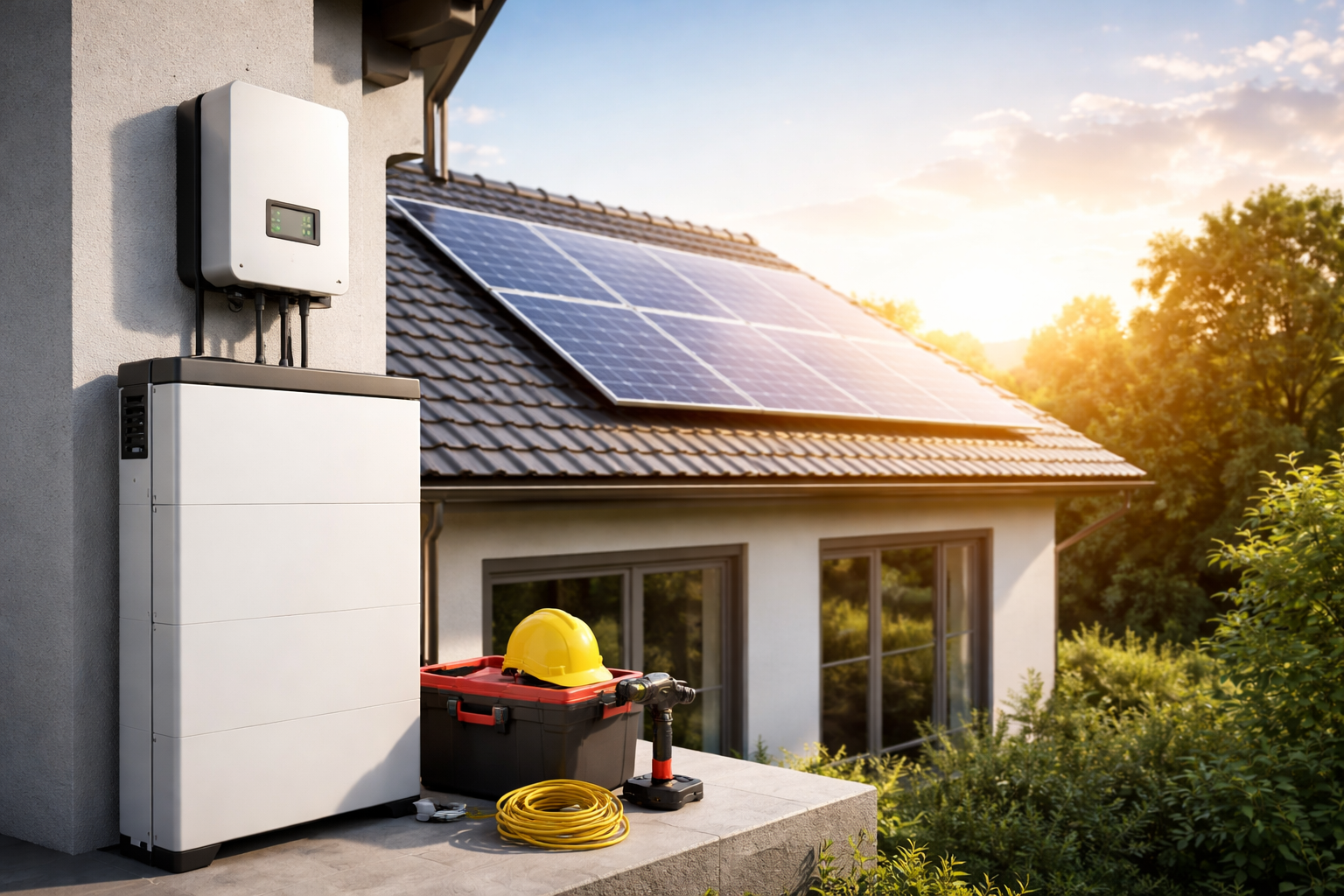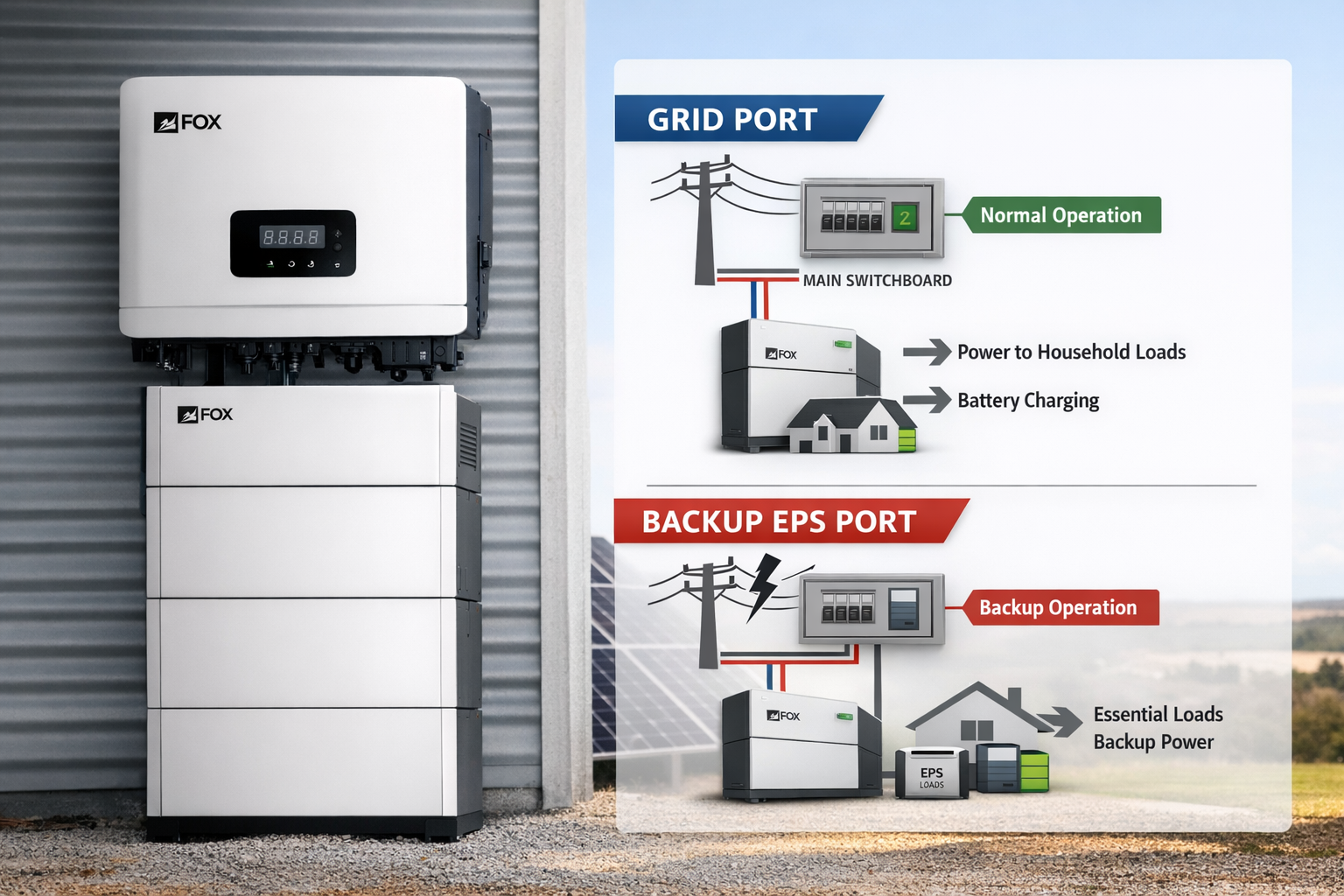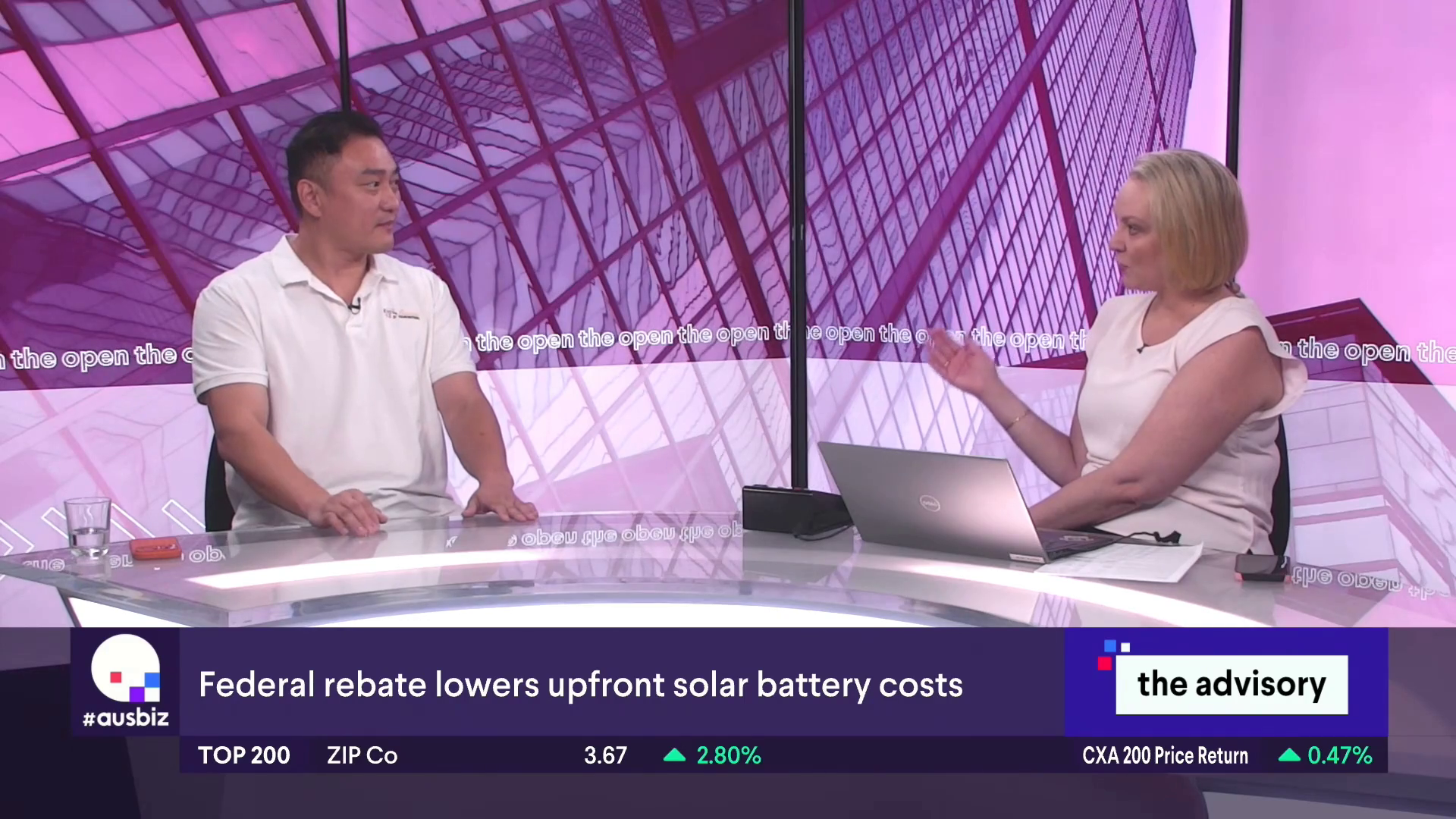Are Solar Batteries Worth It in 2025? A Guide for NSW Homeowners
Are Solar Batteries Worth It in 2025? The Definitive Guide for NSW Homes
It’s the question on everyone’s mind: Are solar batteries worth it?
Not long ago, the answer might have been “only if you’re passionate about clean energy.” Batteries were expensive, rebates were rare, and the payback time stretched so far into the future that most families shrugged and stuck with panels alone.
But 2025 is different. The market has shifted, rebates have landed, and the numbers finally add up. For the first time, a solar battery isn’t just a feel-good investment, it’s one that makes hard financial sense.
Why Solar Batteries Can Save You Serious Money
Think of your solar panels like a garden that grows fresh food every day. Without a battery, you eat what you can while the sun shines, and the rest is left to rot. A battery is the fridge that keeps your harvest for later.
The reality is that feed-in tariffs (the credit you get for exporting excess solar back to the grid) have been shrinking for years. What used to feel like “free money” now barely dents the power bill. Storing your own energy, and using it at night when electricity is most expensive, flips the game back in your favour.
For many Sydney and NSW households, that means savings of $500 or more every single year. And when you combine that with the new federal rebate, the payback period drops to a couple of years — not a decade.
Why Now Is the Best Time
Timing matters in investments. And right now, the timing couldn’t be better.
The federal government has launched a $2.3 billion Home Battery Rebate, designed to accelerate uptake and cut the upfront cost by around 30%. That’s not a token discount, we’re talking thousands shaved off in one move.
Other companies are quoting $12,000–$20,000 for systems. But when you factor in rebates, the price can fall into the $5,000–$7,000 range for larger batteries — if your installer is set up to pass the savings straight to you.
And here’s the kicker: rebates are capped. Once the funds run dry, so do the discounts.
The Bonus Value of VPPs
On top of bill savings, there’s another lever to pull: Virtual Power Plants (VPPs).
Think of a VPP like joining forces with other battery owners across Sydney. Your battery feeds into the grid at peak times, helping stabilise supply, and in return, you get credits, revenue, or rewards.
But here’s the nuance many people miss: some aggressive VPP programs maximise grid export but can put extra wear and tear on your battery, cycling it more often than you would on your own. That can shorten its useful life if not carefully managed.
This is where smarter options like GloBird’s ZEROHERO plan strike a balance. Instead of draining your battery on someone else’s schedule, ZEROHERO offers a mix of perks, like free midday charging, blackout protection, and evening credits, while letting you stay in control of your battery’s capacity.
This balance shifts the story from “worth it” to “irresistible.” With rebates covering upfront costs and carefully chosen VPPs compounding your savings, batteries aren’t just cutting bills, they’re opening up new income opportunities while still preserving long-term performance.
What Really Defines “Worth It”
Of course, no two households are the same. Here’s what defines whether a battery makes sense for you:
- Your usage: The more power you use in the evenings, the bigger the benefit.
- Your system size: Larger solar arrays pair better with batteries.
- Your goals: Some families want blackout protection, others want pure financial ROI.
- The installer you choose: And here’s where the story takes a turn.
The Aussie Solar Batteries Difference
At Aussie Solar Batteries, we’ve seen the industry from the inside out. Since 2017, we’ve completed over 15,000 installations across NSW, QLD, and SA. We know what makes a battery truly worth it, and what gets in the way.
Here’s how we keep it fair:
- We design around the rebate — so you unlock the full savings, not a watered-down version.
- We buy direct — no middlemen, no extra markup.
- We’re big enough for scale, lean enough to stay sharp — which means better prices, faster installs.
- We keep it simple — no deposits, no bait-and-switch, installs in 6–8 weeks (usually closer to 6).
- We don’t inflate prices to look generous later — what you see is what you get.
That’s why our batteries don’t just look worth it on paper. They prove it in homes every day.
The Bottom Line
So, are solar batteries worth it?
In 2025, in Sydney, in NSW? The answer is a resounding yes. With rebates cutting costs, electricity prices climbing, and VPPs unlocking new revenue streams, batteries have finally crossed the line from “future tech” to “smart household investment.”
And the only real question left is: who do you trust to install it?
For thousands of Aussie families, the answer has been clear: choose a provider with proven experience, transparent pricing, and a track record of reliable installations. In a market where costs and promises can vary wildly, going with a company that’s been around for years and has served thousands of households makes all the difference.
Because when it comes to powering your home for the next 20 years, worth it doesn’t just mean a good deal. It means peace of mind.
Battery ROI comparison table:
| Battery Size (kWh) | Typical Cost Before Rebate | Rebate Applied | Final Cost After Rebate | Annual Savings Estimate | Payback Period |
|---|---|---|---|---|---|
| 10 kWh | ~$12,000 | ~$3,600 | ~$8,400 | ~$900 | ~9 years |
| 20 kWh | ~$18,000 | ~$5,400 | ~$12,600 | ~$1,500 | ~8 years |
| 37 kWh (Fox ESS via ASB) | ~$22,299 | ~$16,800 | $5,499 | ~$2,200 - $2,750+ | ~2 years |
Frequently Asked Questions: Are Solar Batteries Worth It in Sydney & NSW?
Are solar batteries really worth it in Sydney and NSW?
Yes — especially in 2025. With electricity prices rising, most Sydney households save between $2,000–$2,500 per year by adding a battery. That means large systems can pay for themselves in under 2 years, compared to 7–10 years for smaller models.
Why do bigger solar batteries get a larger rebate if it’s only 30%?
The federal rebate isn’t a flat dollar amount — it’s based on the usable kilowatt-hours (kWh) of your battery system. In 2025, the rebate is capped at $372 per kWh, up to a maximum of 50 kWh per household.
That means:
- A small 10 kWh battery qualifies for about $3,720 off (30% of ~$12,000).
- A medium 20 kWh battery gets roughly $7,440 off.
- A larger 37–42 kWh system can unlock the maximum rebate — around $16,800 off.
So the “30%” scales with size. The more storage you install (up to 50 kWh), the more rebate dollars you receive. This is why many Sydney families find larger batteries give a much shorter payback period — you get the biggest rebate and more bill savings.
How much do solar batteries cost in Sydney?
Prices vary widely. Smaller 10–13 kWh batteries still cost $9,000–$12,000 installed after rebates, while larger systems (30–40 kWh) can be secured for around $5,500–$6,500 installed with the federal rebate — making them far better value.
What rebate is available for solar batteries in NSW?
From July 2025, the Federal Cheaper Home Batteries Program gives up to 30% off the cost of a battery system, capped at 50 kWh. For Sydney families, that can mean up to $16,800 off a larger battery system.
How long is the payback period for a solar battery?
For older, smaller batteries, payback could take 7–10 years. But with today’s rebates and higher-capacity systems, Sydney households often see payback in just 2–3 years, after which savings continue for decades.
What is a Virtual Power Plant (VPP), and does it make batteries more valuable?
Yes. A VPP lets you earn credits or payments by sharing stored energy back to the grid during peak times. Programs like GloBird’s ZEROHERO plan give free midday charging and evening rewards, which can boost savings by hundreds of dollars per year.
What should I look for when choosing a solar battery company in Sydney?
Look for a provider with:
- Proven experience and thousands of past installations
- Transparent, all-inclusive pricing (no hidden add-ons)
- Accreditation with the Clean Energy Council (CEC)
- Strong warranties (10 years or more)
- Clear rebate support and paperwork handling




